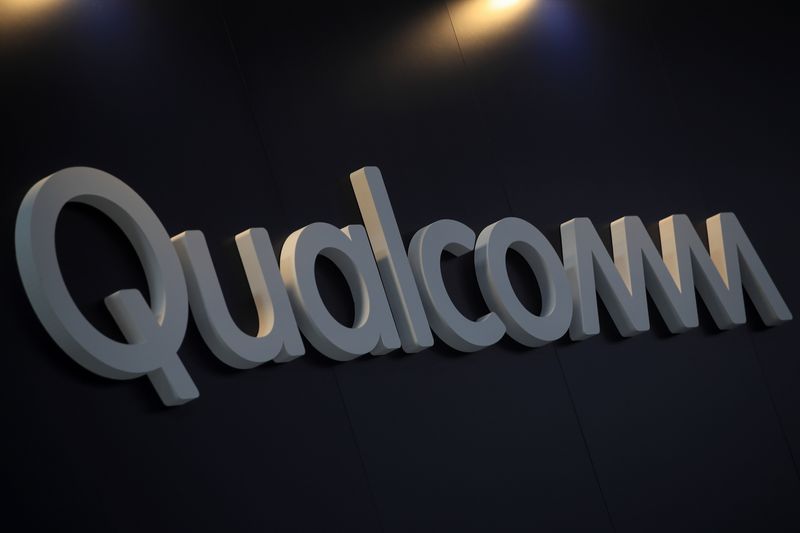By Tom Hals
WILMINGTON, Delaware (Reuters) - Internal Qualcomm (NASDAQ:QCOM) documents showed the chip firm estimated it could eventually save as much as $1.4 billion a year on payments to Arm by purchasing a little-known startup in 2021, according to evidence shown at a trial on Wednesday.
The projection surfaced while Qualcomm CEO Cristiano Amon was testifying to a jury in Delaware federal court about his firm's rationale for purchasing Nuvia for $1.4 billion in 2021.
"It justified the acquisition," he said of the potential savings on royalty payments to Arm.
The chip firm's CEO was testifying as part of a trial to resolve claims that Arm can force Qualcomm to destroy the technology it acquired because Arm never consented to the transfer of Nuvia's license agreements.
Qualcomm has used the technology and talent it acquired from Nuvia to spearhead its push into the PC market, where it is hoping to help Microsoft (NASDAQ:MSFT)'s Windows ecosystem claw back market share lost to Apple (NASDAQ:AAPL) in recent years.
Amon's testimony on Wednesday described how relations between Arm and Qualcomm, Arm's biggest customer, began to curdle years before the court dispute between the two firms. In the 2010s, Qualcomm stopped designing its own computing cores and decided to purchase designs off the shelf from Arm.
Near the end of the decade, Qualcomm believed the technology it was buying from Arm was causing it to fall behind Apple in the smartphone market at the same time Amon saw an opportunity to challenge Intel (NASDAQ:INTC) in the laptop market. But Qualcomm had no viable plan for developing its own computing cores to lessen its dependence on Arm, Amon testified.
That changed when a team of ex-Apple engineers who had helped design the iPhone maker's flagship chips founded their own startup in 2019 called Nuvia. After trying without success to persuade Nuvia to develop computing cores for Qualcomm, Amon decided the best path was to buy the young company.
Qualcomm faced a challenge in justifying the deal. While Nuvia had designs and sought-after talent, it lacked a finished product and was focused on the server market, not laptops and mobile devices.
To justify spending hundreds of millions of dollars or more for the firm, Amon told Qualcomm's board that the company could eventually save as much as $1.4 billion per year on payments to Arm by switching away from Arm's computing core designs to those based on work by Nuvia and its team.
The $1.4 billion a year of theoretical savings was based on the expectation that Qualcomm would enter a massive new market for PC chips that would require similarly massive payments to Arm for the use of its technology.
That figure is far higher than the $50 million reduction in revenue from Qualcomm that Arm executives feared when the Nuvia deal was announced.
Analysts have estimated that Qualcomm currently pays Arm about $300 million a year, though that figure does not take into account possible Qualcomm expansions into new markets.
Amon said he believed Qualcomm would be free to start using Nuvia's technology because both Nuvia and Qualcomm had their own licenses to build computing cores that would be compatible with Arm's underlying computer architecture.

Arm's executives objected and eventually terminated Nuvia's license, demanding that Qualcomm destroy all Nuvia technology that was developed with it.
Closing arguments in the trial are expected on Thursday.
(Reporting Tom Hals in Wilimington, Delaware; Writing by Stephen Nellis in San Francisco; Editing by Bill Berkrot)